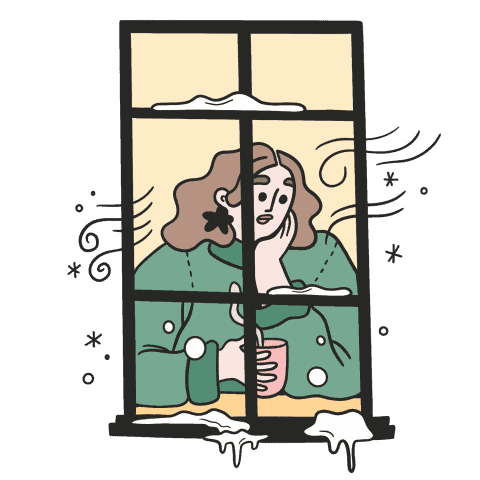Don’t get me wrong, the holidays can usher in a variety of great things, like bringing families together or coaxing out the spirit of giving in people. Unfortunately, there are a lot of bad things that can occur at this time of year.
Christmas can place a large amount of stress on many families. For some, this season may bring up negative emotions any number of reasons, from missing family members due to a recent passing or being separated by a great distance to stress from financial burdens.
A heavier workload can lead to increased stress — as university students, we all know this. During the holiday season, people with retail or sales jobs are often given more shifts so that businesses can manage consumer demand and the influx of shoppers in malls.
Others may pick up extra hours at work, so they can make more money to afford gifts for family and friends. With children being off from school during the holiday break, parents may need to take time off work to be home to look after their kids, forcing one parent to work extra to make up for lost income.
Even the weather at this time of year can have an impact on people’s mental and physical well-being. Although holiday songs and decorations are meant to bring cheer, the gloomy weather and decreased amount of daylight are doing the opposite.
With shorter and colder days, people tend to spend most of their time indoors. Students who live in campus residences might be able to stay indoors and wander the warm tunnels as long as their class locations allow for it. However, some people might feel down in the cold winter months from a lack of sunlight, which travels through the optic nerve and releases “happy” chemicals like serotonin.
All of this stress can push people towards unhealthy coping mechanisms such as heavy drinking or overeating. Unfortunately, drinking and driving is a prevalent issue at this time of year despite our attempts as a society to try to put an end to it.
According to research in the United States, the number of alcohol-related accidents seems to spike twice a year: in the summer months and again in December. Yet, Canadian researchers report that the spike occurs in the fall, with rates dropping to the lowest levels of the year in winter months.
But this doesn’t mean that there isn’t any risk on the roads this season. In 2010, Statistics Canada reported 1,200 incidents of impaired driving over each weekend approaching Christmas and New Year’s.
Drinking rates also spike this time of year. The Ontario Public Health Association noted that LCBO saw significant sales peaks between Dec. 6 and Jan. 2 and the lowest dip in sales immediately afterwards.
One can assume that, if people are aware their drinking habits are being tracked, they may alter their alcohol intake or their self disclosure of such. It’s not hard to imagine the increased number of accidents caused by impaired driving with trends like these.
This season isn’t all cheer, and it’s clear that the holidays can be really hard for everyone. Some of us may relate to all of these humbug holiday feelings, while some may love being jolly during the season. We can all try to take care of ourselves and others over the break.
—
Hope N.S. Jeffery
Graphic: Jaymie Stachyruk / Graphics Editor